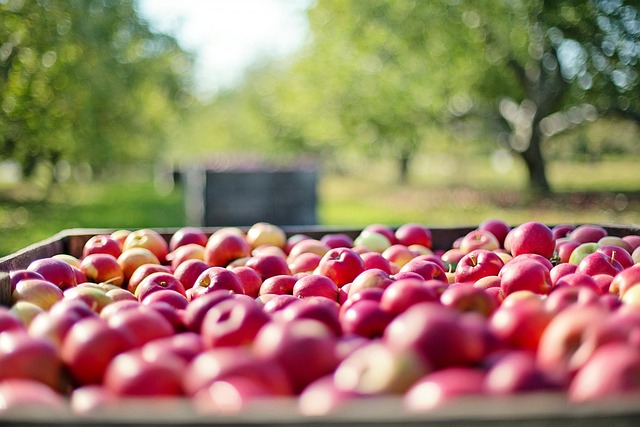Organic Crop Protection Methods

Introduction
In today’s agriculture, maintaining crop health while safeguarding the environment has become a top priority. Farmers across the globe are turning to Organic Crop Protection methods as a sustainable alternative to chemical-based solutions. Unlike synthetic pesticides and fertilizers, organic practices focus on natural, eco-friendly techniques that protect plants, enrich soil health, and support biodiversity. The ultimate goal is to ensure long-term productivity without compromising food safety or environmental balance.
Organic Crop Protection relies on age-old farming wisdom blended with modern research. It emphasizes preventive measures rather than reactive solutions. Techniques such as crop rotation, intercropping, and the use of resistant crop varieties help reduce pest and disease risks naturally. Biological control, which introduces beneficial insects like ladybugs or predators, ensures natural pest regulation. Farmers also use botanical extracts, neem oil, compost teas, and microbial solutions that are safe for plants, animals, and humans alike. These methods not only protect crops but also improve soil fertility and microbial activity, leading to healthier yields year after year.
One of the strongest advantages of Organic Crop Protection is its holistic approach. By nurturing soil health, encouraging natural predators, and maintaining ecological balance, it creates a resilient farming system. Unlike chemical-based methods that may harm beneficial organisms and pollute groundwater, organic techniques support pollinators, beneficial microbes, and biodiversity. Consumers also benefit from healthier produce free of toxic residues, while farmers gain long-term sustainability and reduced dependency on costly synthetic inputs.
Adopting Organic Crop Protection is not just a farming method—it is a commitment to safer food, sustainable agriculture, and environmental stewardship. As awareness grows, more farmers are realizing that nature itself provides effective tools for protecting crops, ensuring a greener and healthier future for generations to come.
Key Techniques in Organic Crop Protection
- Biological Control
One of the most effective Organic Crop Protection methods is biological control, which uses natural predators and beneficial organisms to manage pests. Ladybugs, predatory mites, and parasitic wasps target harmful insects without harming crops. Beneficial nematodes can control soil-borne pests, while microbial solutions, such as Bacillus thuringiensis (Bt), specifically target harmful larvae. This approach reduces dependency on chemical pesticides and maintains ecological balance in the farm environment. - Botanical and Natural Extracts
Plant-based extracts play a crucial role in Organic Crop Protection. Neem oil, garlic extract, chili-based sprays, and other botanical formulations act as natural repellents against insects and pathogens. These extracts are biodegradable, non-toxic, and safe for humans, animals, and beneficial insects. Regular application can significantly reduce pest infestations and enhance plant resilience against diseases. - Crop Rotation and Intercropping
Preventive measures like crop rotation and intercropping are essential in organic farming. Rotating crops with different nutrient requirements and pest susceptibilities disrupts pest life cycles, reducing infestations naturally. Intercropping—growing complementary crops together—can confuse pests and create a microenvironment that discourages disease spread. This technique also enhances soil fertility and encourages biodiversity, making farms more resilient to environmental stress. - Organic Soil Amendments
Healthy soil is the foundation of effective Organic Crop Protection. Organic fertilizers, compost, and green manures enrich the soil with nutrients and beneficial microbes, strengthening plant immunity against diseases and pests. A robust soil ecosystem supports natural pest control, improves water retention, and promotes sustainable crop growth. - Physical and Mechanical Methods
Simple mechanical techniques are often overlooked but highly effective. Netting, mulching, traps, and barriers prevent pests from reaching crops, while manual removal of infected plants or pests minimizes disease spread. These methods, when combined with biological and cultural practices, create a comprehensive organic protection system. - Resistant Crop Varieties
Planting disease-resistant or pest-resistant varieties is a proactive approach to Organic Crop Protection. These varieties reduce the need for interventions and enhance productivity while minimizing chemical usage.
By integrating these techniques, farmers can achieve a balanced, sustainable, and eco-friendly crop protection system. Organic methods not only protect plants but also preserve soil health, water quality, and biodiversity, ensuring long-term farm productivity and environmental sustainability.
Conclusion
Embracing Organic Crop Protection is more than a modern farming trend—it is a commitment to sustainable agriculture, healthier produce, and environmental stewardship. By combining biological control, botanical extracts, crop rotation, organic soil amendments, and resistant crop varieties, farmers can effectively safeguard their crops without relying on harmful chemicals. These methods enhance soil fertility, preserve biodiversity, and support long-term farm productivity, creating a resilient and eco-friendly farming system.
At Indochemagrovet, we provide expert guidance and high-quality solutions to help farmers implement effective Organic Crop Protection strategies. From bio-fertilizers and natural soil enhancers to organic nutrients tailored for specific crops, our products empower farmers to achieve higher yields while maintaining sustainability. Take the step towards safer, greener, and more productive farming today.
Boost your farm’s productivity in the natural way with Organic Crop Protection! Discover high-quality bio-fertilizers, natural soil enhancers, and organic nutrients like Fortis, Bhupushti, Borca, Oreo, and Natura Power designed to support healthier, more resilient crops.
Connect with the experts at Indochemagrovet today and take the first step toward sustainable, eco-friendly farming.
🌐 Visit: https://indochemagrovet.in/
📞 Call: +91 9830 720311 / 83369-77770
Our Locations:
Mumbai: Parewala House No.4, Vakola, Santacruz (East), Mumbai 400055
Kolkata: Block – DD, House No-197, 1st Floor, Street No-295, Action Area-1, New Town, Kolkata, West Bengal 700156
Empower your farm with nature-friendly solutions and see the difference today!

